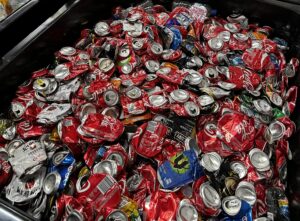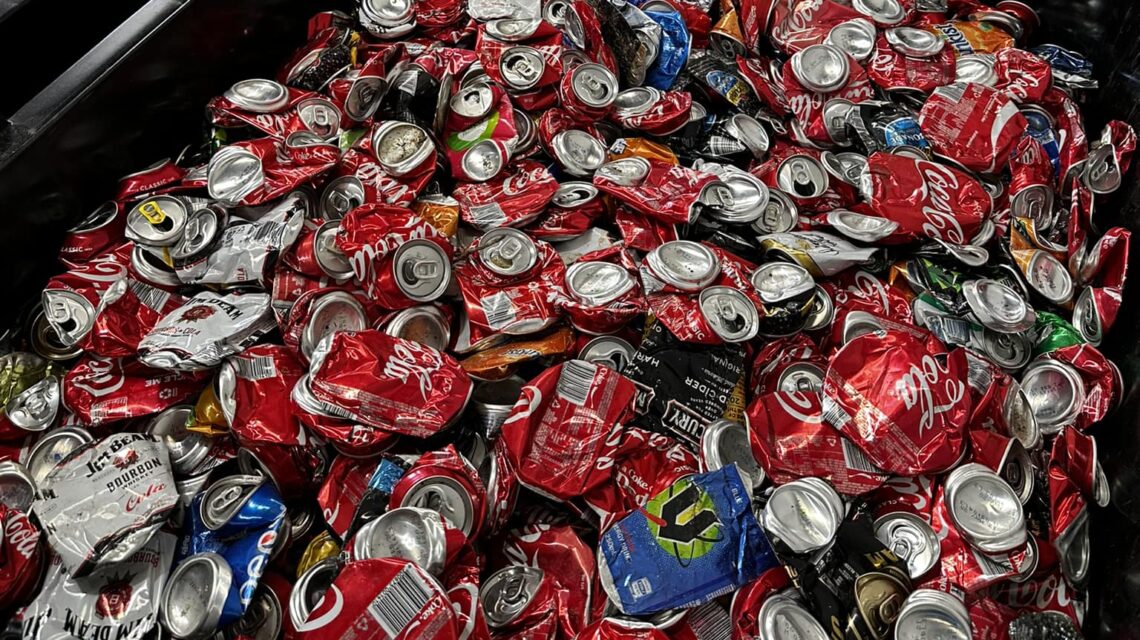In recent years, environmental consciousness has surged, leading to the widespread adoption of Container Deposit Schemes (CDS) across the globe. These initiatives aim to encourage recycling by offering consumers a financial incentive for returning beverage containers, such as cans and bottles. In Victoria, Australia, the Container Deposit Scheme has gained significant traction since it launched only a few weeks ago. However, a peculiar phenomenon has left many participants scratching their heads: why do some depots accept crushed cans, while others do not?
The Victorian Container Deposit Scheme
The Victorian Container Deposit Scheme was introduced to combat the environmental impact of single-use beverage containers. Under this program, consumers receive a refund when they return eligible containers to designated collection points, commonly known as depots or refund points. While the scheme has been largely successful in promoting recycling, the question of whether or not crushed cans are accepted at these depots varies.
Why Some Depots Accept Crushed Cans:
- Space Efficiency. Some depots may accept crushed cans because they can be more space-efficient. When cans are crushed, they take up less room, allowing depots to store and transport larger quantities of recyclables. This is particularly important in high-volume locations where storage space may be limited.
- Advanced Sorting Technology. Some recycling facilities utilise advanced sorting technology that can accurately identify and process crushed cans. These facilities use state-of-the-art machinery equipped with sensors and conveyor belts, making it possible to distinguish between whole and crushed containers whilst also ensuring container eligibility.
- Reduced Transportation Costs. Crushed cans may offer a cost-saving advantage during transportation. Since they occupy less space, more crushed cans can be transported in a single load, reducing fuel consumption and emissions. This aligns with the broader goals of sustainability and efficiency.
- Increased Participation. Accepting crushed cans might encourage more individuals to participate in the Container Deposit Scheme. Some consumers find it more convenient to crush their cans before returning them, and accommodating this practice can contribute to higher participation rates and, consequently, greater environmental benefits.
Why Some Depots Do Not Accept Crushed Cans:
- Manual Sorting Processes. Certain depots may rely on manual sorting processes, where workers visually inspect and sort incoming recyclables. In such cases, accepting crushed cans can complicate the sorting process, making it more challenging for workers to identify and handle them correctly.
- Equipment Limitations. Older or less advanced recycling facilities may not have the technological capabilities to effectively process crushed cans. The majority of Reverse Vending Machines (RVMs) used rely heavily on being able to scan the barcode in order to ensure the container is eligible.

Conclusion
The acceptance or rejection of crushed cans at Container Deposit Scheme depots in Victoria can be attributed to a combination of logistical, technological, and quality control factors. As the recycling industry continues to evolve, depots may adapt their policies to accommodate innovative approaches to waste management. In the meantime, consumers can play a crucial role by staying informed about the guidelines of their local CDS depots and adapting their recycling practices accordingly. Ultimately, the goal is to create a more sustainable and efficient system that maximizes the benefits of recycling for the environment.


